Tree Removal
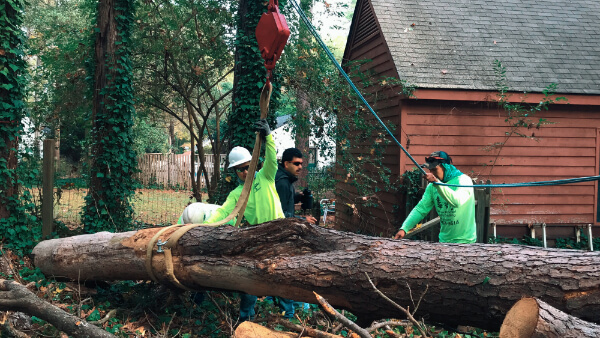
Tree removal is the process of cutting down unwanted trees, transporting them away, and grinding down their stump. The goal is to remove the entire tree instead of just trimming off individual sections of it. It frees up land for other uses because there’s no trace of the tree on its surface.
● Tree Removal Service – Tree removal service is a professional service provided by our tree care experts. They will cut down, transport the debris, and remove the stump for you.
● Is Tree Removal Covered By Insurance? – Yes, tree removal and damage caused by fallen trees or branches are covered by most homeowner’s insurance policies.
● What Does It Mean To Be Bonded? – When a company that provides tree services is bonded, it means they have a bond in place to protect their client’s interests. A surety bond awards compensation if you file a claim against a tree company and they’re unable to pay.
If you want to get insurance coverage, be sure to hire tree service professionals for removal. Insurance providers won’t be able to create obstacles or deduct money from your claim amount.
Call our experienced team today for tree removal services in Chapel Hill, Cary, Durham, Holly Springs, Raleigh, Hillsborough, Mebane, Morrisville, Pittsboro, NC, and the surrounding community.
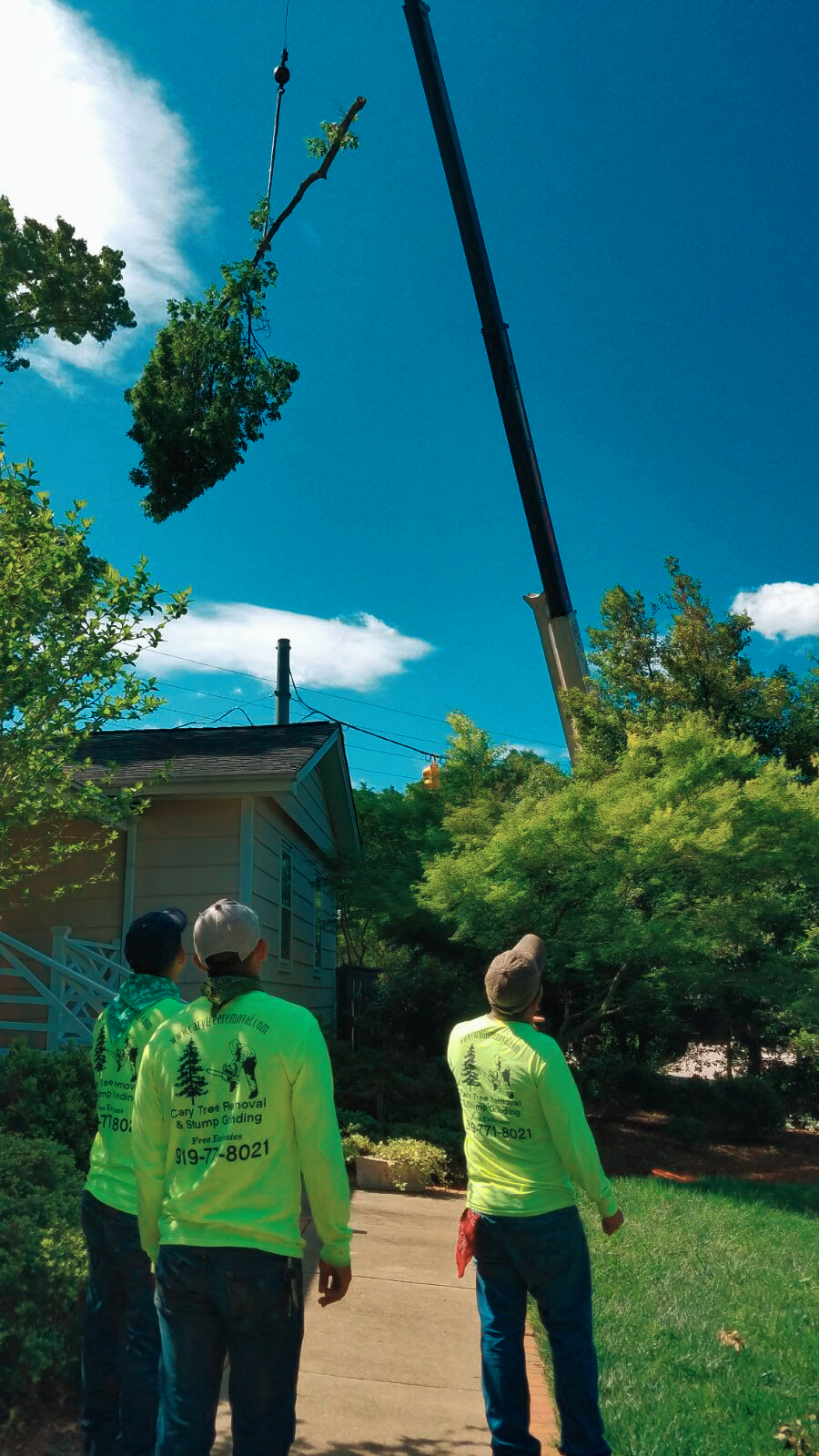
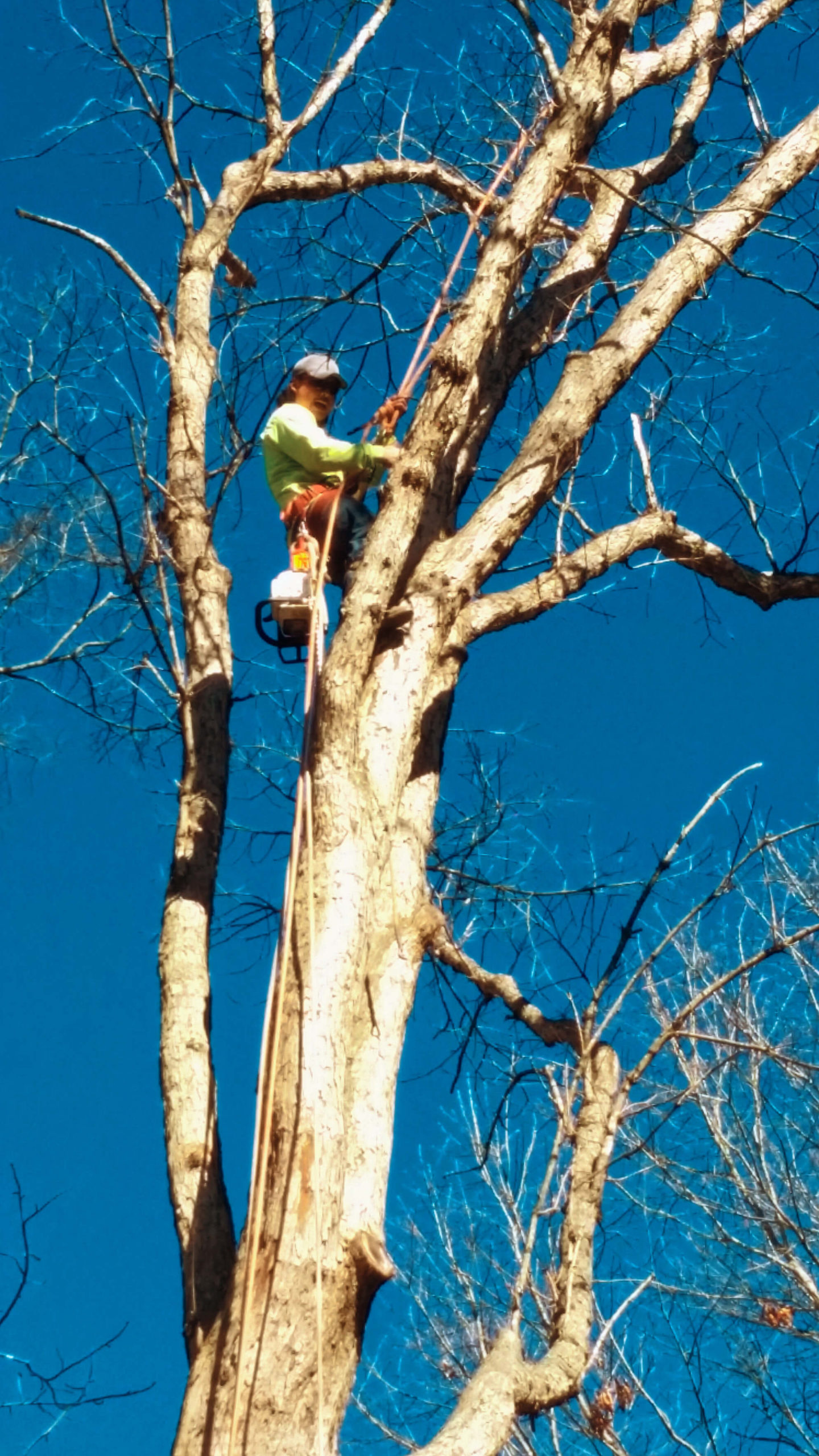
TREE REMOVAL COSTS
Removing a fallen tree is cheaper than removing a standing tree because there’s less labor involved. Specialists don’t need to worry about protecting surrounding structures or securing the tree properly. They just need to cut the wood down to manageable pieces before removing it. This process cost can vary based on your tree’s size, location, length, and other factors. A service provider may charge more for removing all debris from a fallen tree site.
A massive tree requires a lot of care and planning. Specialists must determine where to cut, how many sections to create, and what kind of rigging the tree will need. They should also take proper precautions for the safety of surrounding properties. Removing massive trees is time-consuming, which also adds to the cost.
Huge trees of over 80 feet may cost more to remove. Here’s some more related information:
- Pine trees can be over 90 feet tall and more than 2 feet wide.
- Poplar trees can be anywhere between 90 feet and 115 feet.
- Maple trees can be as large as poplar, reaching up to 100 feet.
A member of our team will give you a free quote based on your particular tree needs.
WHEN TO HAVE TREES REMOVED
Most people cut trees down because they want to make room for new structures or free up some space on their property. If that’s the case, cut them down when they’re dormant in late winter or early spring. Dormant trees don’t have large fruit, abundant foliage, or high amounts of water in their trunk. This means they’re lighter and a little more brittle, which makes them easier to cut down.
However, it’s not always possible to wait until late winter to cut down a tree. Call Cary Tree Service RTP immediately if you’re facing the issues like:
- Trees leaning precariously
- Severely diseased trees
- Large cracks or physical damage
- Severe soil erosion with no support structure for roots
- Dead and brittle trees
All of these plants are unstable and can fall at any time. You should cut them down as soon as possible to avoid injuries or property damage.
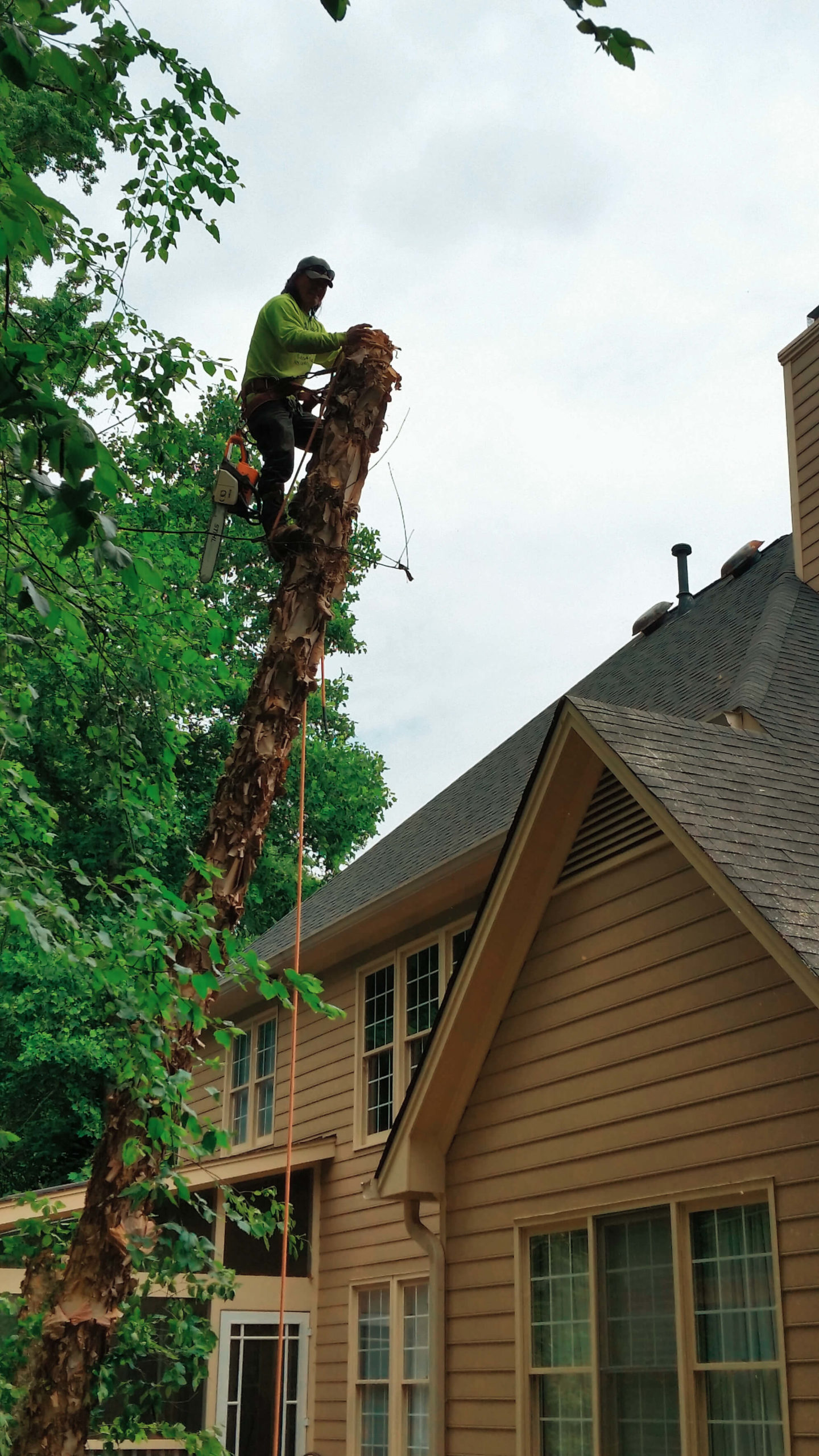
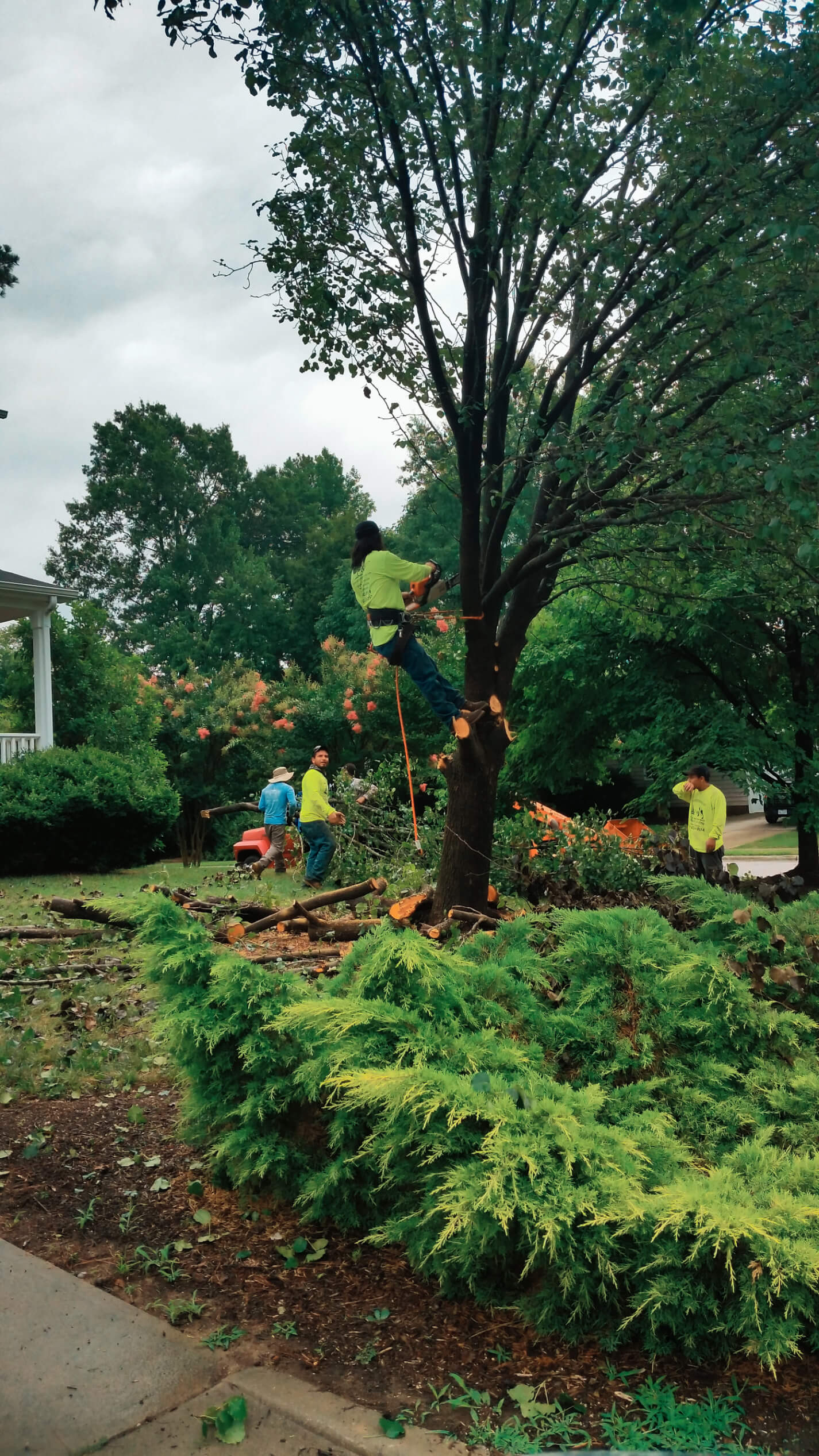
DO I NEED PERMISSION TO REMOVE TREES ON MY PROPERTY?
Most cities and towns have a tree removal ordinance which provides a set of instructions on how to handle trees. While you can remove trees from your property, you need permission to get it done. Local governments typically require permits for removing trees over 60 inches in diameter and 10 feet in height.
Trees aren’t a landowner’s property, even if they’re growing on their land. Governments consider them community property because they offer benefits to the entire community and cutting them down can affect the environment. Regulations vary from city to city, but you can quickly get permits easily for removing dead, fallen, non-protected, invasive, or dangerous trees.
Cary Tree Service RTP
Contact us today to schedule an appointment
